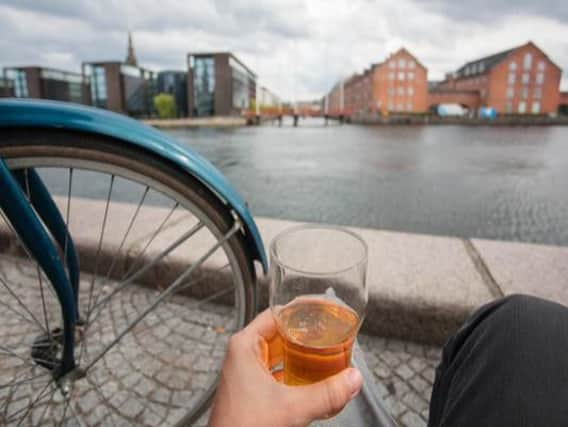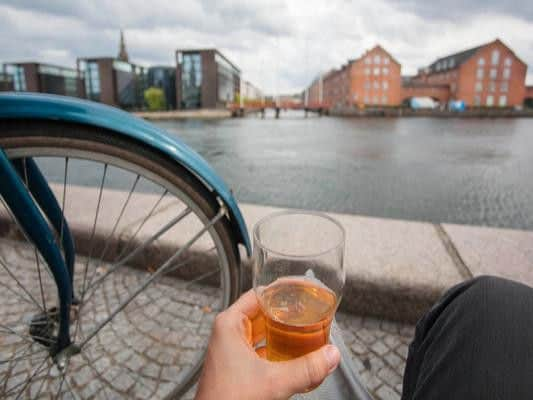These are the laws around drinking and cycling - and the fines you could face


But what are the rules regarding drinking and cycling, and what fines could you face?
Drink cycling


According to the Road Traffic Act 1988, it is an offence to ride a bike when you are unfit to do so as a result of drink or drug use, and it is illegal for any road user not to comply with the Road Traffic Act 1998.
Advertisement
Hide AdAdvertisement
Hide Ad“The Road Traffic Act makes it an offence to ride a bike on a road or other public place, which will include a path or pavement, when you are unfit to ride through drink or drugs,” explains Hannah Parsons, Principal Associate Solicitor at DAS Law.
Can I be convicted for cycling drunk?
James Farrell, Criminal Lawyer at Slater Gordon, explains that although drink cycling is a chargeable offence for which you can be arrested, fixed penalties are preferable to convictions and it is usually “dealt with by other disposable methods.”


However, Mr Farrell further expands on this, explaining that if other “aggravating factors” occurred while cycling under the influence of alcohol - such as hitting a pedestrian - then going to court would be more likely, but “alternative ways” are usually used instead of convictions where possible.
Richard Gaffney, Serious Injury Lawyer at Slater and Gordon, adds, “The best advice I can give is not to drink alcohol if you intend to cycle. If you do drink then there is a good chance you will be committing a criminal offence.
Advertisement
Hide AdAdvertisement
Hide Ad“It is illegal to ride your bike under the influence of drink or drugs, and you would be guilty of this if you were unfit to ride to such an extent as you are incapable of having proper control of the bicycle.”
What fines could I face?
The maximum penalty for cycling whilst under the influence of drink or drugs is a £1,000 fine, which is also the case for careless or inconsiderate cycling.
The maximum penalty for dangerous cycling is a £2,500 fine.
Ms Parsons adds, “If a police officer notices that you appear to be incapable of having proper control of the bike, then there is a high likelihood that you will be stopped and may face prosecution.”
Can I get points on my driving licence?
Cycling UK explains that “it is true that you can't have your driving licence endorsed with penalty points because of an offence committed on a bicycle”.
Advertisement
Hide AdAdvertisement
Hide AdHowever, the cycling organisation adds that “it’s often overlooked that the court does have a general power under the Power of Criminal Courts (Sentencing) Act 2000 to disqualify anyone from driving, without imposing penalty points, for any offence, including a cycling offence.”
Can I be breathalysed?
Unlike drink driving, there is no upper alcohol limit for drunk cycling, and although police may ask for a breath test, Mr Farrell explains that cyclists can decline this.
“Although it is an offence to cycle under the influence of alcohol, a police officer cannot force you to provide a breath, blood or urine sample,” adds Mr Gaffney.
“They can ask, but if you refuse and subsequently charged with cycling under the influence, the Crown Prosecution Service (CPS) wouldn’t be allowed to use your refusal as evidence against you.”
However, if a police officer believes that a cyclist is “incapable of having proper control of the cycle”, this may then be escalated, according to Mr Farrell.